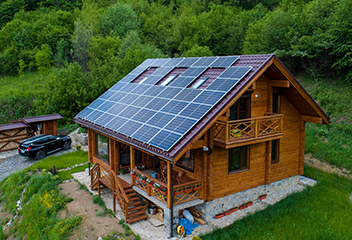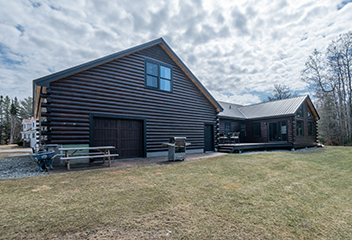Living in an off-grid home offers numerous advantages that can enhance your lifestyle and contribute to a more sustainable future. Firstly, one of the most significant benefits is the independence it provides. By generating your own power through renewable sources like solar panels or wind turbines, you become less reliant on the grid and its associated costs. This self-sufficiency grants you greater control over your energy consumption and the ability to live comfortably even during power outages or emergencies.
Another advantage is the reduced environmental impact. Off-grid homes typically prioritize energy efficiency and conservation, leading to a smaller carbon footprint. By utilizing renewable energy sources and implementing efficient systems, you can significantly decrease your reliance on fossil fuels and contribute to mitigating climate change.
Living off-grid also allows for a closer connection to nature. With a greater emphasis on sustainable practices, you can adopt eco-friendly habits such as rainwater harvesting, composting, and organic gardening. These activities not only promote self-sustainability but also foster a deeper appreciation for the natural world and its resources.
Financial savings are another significant advantage of off-grid living. While the initial investment in renewable energy systems may be higher, the long-term savings on utility bills can be substantial. By generating your own power and reducing dependence on external resources, you can potentially eliminate or significantly reduce monthly expenses, freeing up funds for other priorities.
Furthermore, off-grid living encourages a simpler, more mindful lifestyle. With limited resources, you become more conscious of your energy consumption and overall environmental impact. This can lead to a more intentional approach to daily living, focusing on quality over quantity and reducing waste.
Lastly, living off-grid offers a sense of resilience and preparedness. By being self-reliant, you are better equipped to handle unexpected events or emergencies. Whether it’s a natural disaster or a disruption in the grid, your off-grid home ensures a consistent supply of power, water, and other essential resources.
In summary, living in an off-grid home provides advantages such as energy independence, reduced environmental impact, financial savings, a closer connection to nature, a simpler lifestyle, and increased resilience. It offers a unique opportunity to live sustainably, embrace self-sufficiency, and contribute to a more sustainable future.




